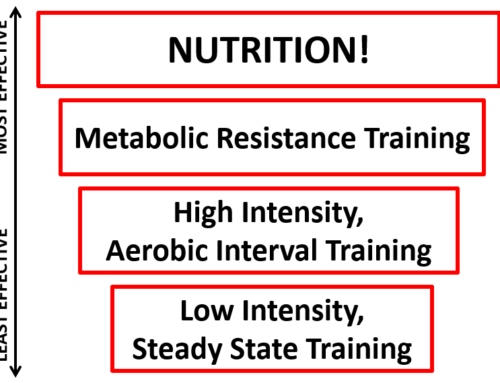Yes, you read that correctly, and it’s worth repeating: carbohydrates are key! One flip through a magazine may lead you to believe otherwise, though, since low-carb diets have been popular weight-loss techniques in recent decades. But don’t let these trends fool you into avoiding carbs while you’re trying to increase your fitness. After reading this week’s Focus Point, you’ll have a better understanding of the value carbs offer, instead of considering them the root of all dietary evil.
The food we eat provides three types of macronutrients: protein, fat, and carbohydrates. While most foods contain some amount of each macronutrient, often one nutrient is dominant. Starchy foods (like bread, rice, pasta, and crackers) tend to be high in carbs. Carbs are also the main macronutrient in fruit, some dairy products, and of course sweets.
Carbs are important in our bodies for a variety of reasons. Not only are they the main source of energy for our bodies, they are also the only form of energy that is used by our brains. In addition to these important functions, carbs also build and repair other body cells. It’s no wonder that eliminating carbs from your diet can result in fatigue, excessive muscle soreness, and poor exercise tolerance.
Let’s take a closer look at the three types of carbohydrates: simple, complex, and fiber.
Simple carbs are broken down quickly by the body to be used as energy. They are found naturally in fruits and dairy products. They are also found in highly processed foods like soda, candy, cookies, and syrups. Although these processed foods provide quick energy, they are low in vitamins, minerals, and fiber. The majority of carbs consumed should be complex or naturally-occurring, instead of from processed or refined foods.
Complex carbs come from sugar molecules that are strung together in long, complex chains. They take longer to be absorbed and digested by the body, giving a sustained release of energy rather than a quick jolt. Complex carbs are found in foods like whole grains, beans/legumes, and vegetables.
Dietary fiber is not used for energy, but it has many other benefits. Fiber can help regulate the digestive system, reduce circulating blood fats, and increase our feeling of fullness and satiety after eating. High fiber foods include fruits with skin, whole grains like bran and oats, vegetables, seeds, and nuts.
As you move forward this week, consider carbs. Focus on consuming brightly colored fruits, vegetable and whole grains. And keep in mind that although seeds and nuts are most commonly regarded for their fat content, they are terrific sources of carbohydrate in the form of insoluble fiber.
The carbs you will get from these sources are not the enemy—they’re a vital part of a well-balanced, healthy, and delicious eating plan.
Copyright 2011 Fitness Consultants Inc. All rights reserved.




